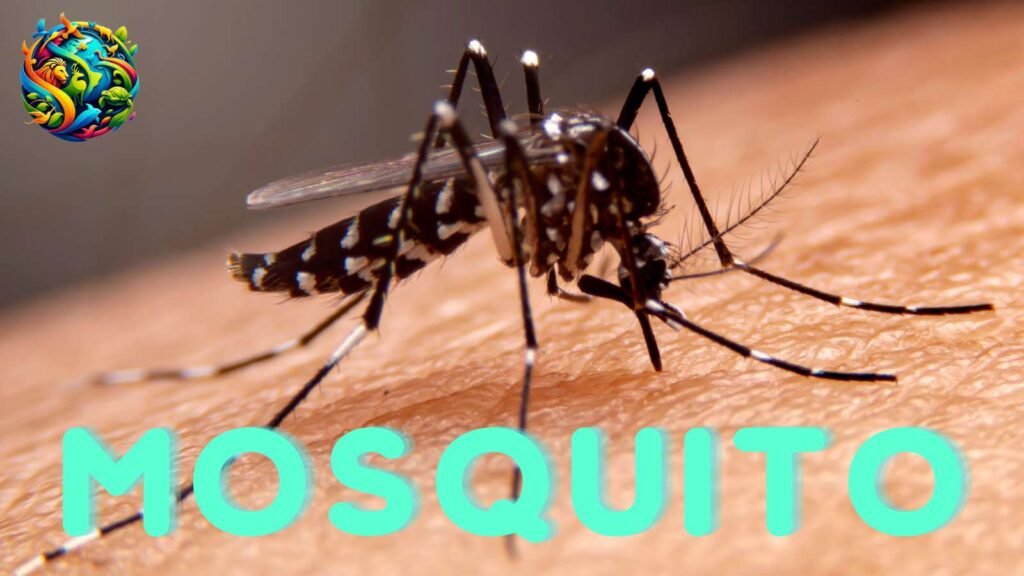Mosquito: The Tiny Yet Formidable Insect
Introduction:
They are small, flying insects belonging to the family Culicidae, with over 3,500 species worldwide. While they may seem insignificant due to their size, these insects play a major role in ecosystems and human life. They are infamous for their role in spreading diseases such as malaria, dengue fever, Zika virus, and West Nile virus. However, they also serve as pollinators and a food source for various animals. Their adaptability has allowed them to thrive in diverse environments, from tropical rainforests to urban landscapes.
Amazing Facts:
- Diversity: There are over 3,500 known species of them across the world.
- Lifespan: Female mosquitoes can live for several weeks, while males typically survive only a few days.
- Flight Speed: They can fly at speeds of 1 to 2 kilometres per hour.
- Feeding: While males feed on nectar, females require blood meals to produce eggs.
- Global Distribution: they are found on every continent except Antarctica.
- Water Dependence: Their larvae develop in stagnant water, making water bodies critical for their life cycle.
- Disease Transmission: They are the deadliest creatures on Earth, responsible for millions of deaths annually.
- Sensory abilities: They can detect carbon dioxide up to 75 feet away.
- Heat Sensitivity: They use heat sensors to locate warm-blooded hosts for feeding.
Habitat and Food:
Habitat:
They inhabit diverse environments worldwide, thriving in places with stagnant water. They are commonly found in:
- Tropical and subtropical regions
- Forests and wetlands
- Urban and suburban areas
- Marshes, lakes, and rivers
- Human dwellings and gardens
Food:
- Nectar and plant sap: primary source of nutrition for both males and females.
- Blood meals: essential for female mosquitoes to produce eggs.
- Larval diet: Larvae feed on microorganisms, algae, and organic matter in water.
Appearance:
They have a distinct physical structure, making them easily recognisable.
- Size: Typically range between 3 to 6 millimetres.
- Colour: Varies by species; often grey, brown, or black with white or iridescent markings.
- Body Structure:
- Head: Contains compound eyes, antennae, and a long proboscis for feeding.
- Thorax: houses wings and legs; the attachment site for movement.
- Abdomen: Contains reproductive organs and expands during blood feeding.
Types/Subspecies
- Anopheles: transmit malaria.
- Aedes mosquitoes: spread dengue, zika, and chikungunya viruses.
- Culex Mosquitoes: Carry West Nile virus and filariasis.
- Toxorhynchites: harmful to humans; larvae prey on other mosquito larvae.
- Mansonia: known for spreading filarial worms.
Predators & Threats:
They serve as prey for various predators, helping regulate their population.
- Birds: Swallows, purple martins, and Sparrows consume them.
- Fish: Gambusia (mosquito fish) specialise in eating their larvae.
- Frogs and Toads: Amphibians consume them in their aquatic larval stage.
- Dragonflies: Both larvae and adult dragonflies prey on them.
- Bats: Nocturnal predators that feed on flying mosquitoes.
Mating and Reproduction:
- Mating Process: Males form swarms, attracting females for copulation.
- Short Lifespan: Males die shortly after mating.
- Egg Laying: Females lay hundreds of eggs in water.
- Development: Eggs hatch into larvae, then pupate before emerging as adults.
How They Communicate:
They use various communication methods:
- Wingbeats: Males and females synchronise wingbeats to find mates.
- Chemical Signals: Pheromones help locate potential mates.
- Vibrations: Used in water during larval stages for interaction.
- Carbon Dioxide Detection: Helps locate hosts for feeding.
Movies featuring them:
They have been featured in various films and documentaries.
- “Mosquito” (1994): A sci-fi horror film featuring giant mosquitoes.
- “Mosquito: The Deadliest Hunter of All” (2017): A documentary exploring their impact on human health.
- “The Mosquito Coast” (1986): Though not focused on mosquitoes, the title alludes to their presence in Central America.
How would you pronounce it?
- English: Mosquito
- Spanish: Mosquito
- French: Moustique
- German: Mücke
- Italian: Zanzara
- Portuguese: Mosquito
- Hindi: Machhar (मच्छर)
- Mandarin Chinese: Wénzi (蚊子)
- Japanese: Ka (蚣)
- Russian: Komar (Комар)
FAQs:
1. Why do they bite humans?
A. Female mosquitoes bite humans to obtain proteins needed for egg production.
2. What diseases do they transmit?
A. They spread malaria, dengue fever, Zika virus, West Nile virus, and chikungunya.
3. How can I prevent their bites?
A. Use insect repellents, wear protective clothing, and eliminate standing water.
4. What attracts them to humans?
A. Carbon dioxide, body heat, and body odours attract them.
5. Do all mosquitoes spread diseases?
A. No, only certain species act as vectors for diseases.
6. Why do they bite itch?
A. Their saliva triggers an allergic reaction, causing itchiness.
7. What is their lifespan?
A. Males live for a few days, while females can survive several weeks.
8. Can they be beneficial?
A. Yes, they pollinate plants and serve as food for various predators.
9. Do they have natural predators?
A. Yes, birds, bats, fish, and dragonflies help control their populations.
10. Can they be completely eradicated?
A. While control measures reduce populations, complete eradication is unlikely due to their adaptability and global presence.
Mosquitoes, despite their negative reputation, play essential roles in ecosystems. Understanding their behaviour and impact can help in managing their populations and mitigating health risks.

